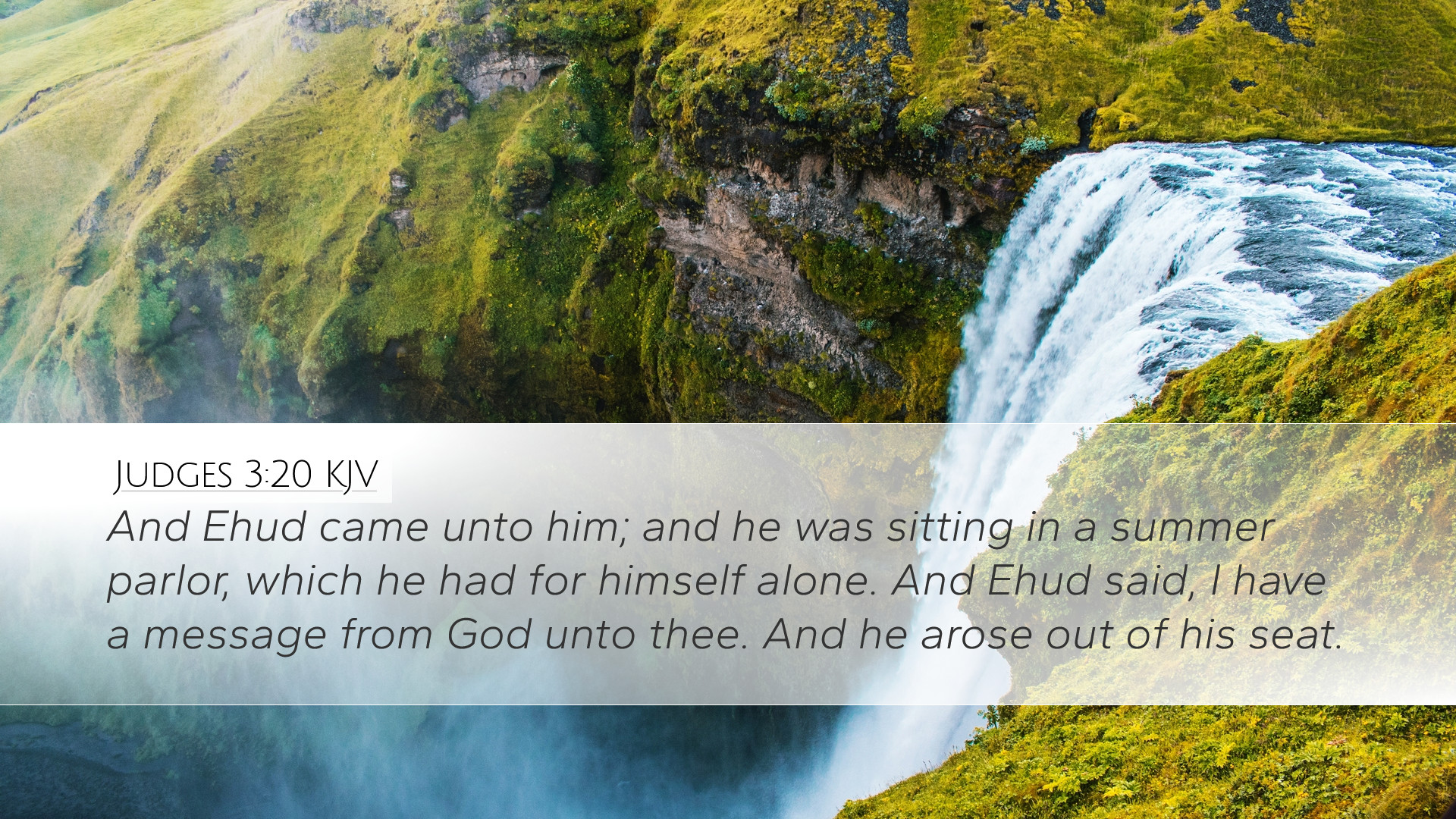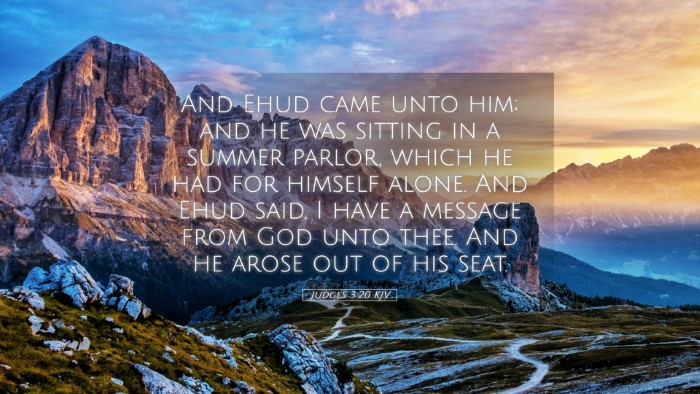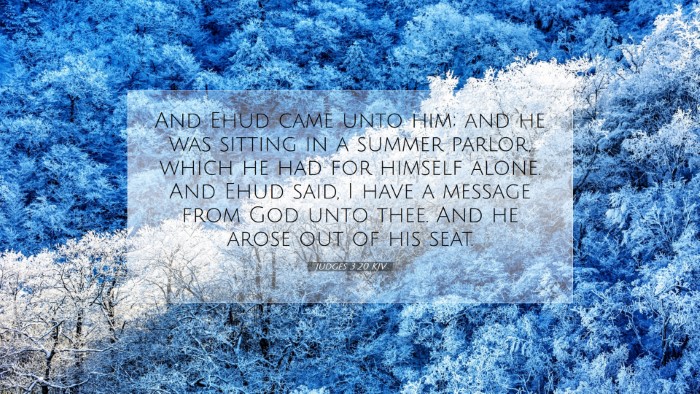Commentary on Judges 3:20
In Judges 3:20, we encounter a pivotal moment in the narrative involving Ehud, the judge of Israel. The verse states:
"And Ehud came unto him; and he was sitting in a summer parlour, which he had for himself alone. And Ehud said, I have a message from God unto thee. And he arose out of his seat."
Contextual Background
This verse occurs within the broader narrative of Israel's cyclical pattern of sin, oppression, repentance, and deliverance, which is characteristic of the Book of Judges. Ehud, a left-handed man from the tribe of Benjamin, is raised up by God to deliver the Israelites from the oppression of Eglon, the king of Moab.
Insights from Matthew Henry
Matthew Henry emphasizes the importance of Ehud's approach and the strategic use of his left-handedness in securing the opportunity for delivering Israel. He notes:
- Divine Preparation: God's providence is evident in the choice of Ehud, who, as a left-handed man, had a significant advantage in approaching Eglon unsuspected.
- Authority and Courage: The verse illustrates Ehud's boldness; he enters the presence of a king with a word from God, indicating his faith and commitment to divine assignment.
- The Symbolism of the Summer Parlour: The mention of Eglon sitting in a 'summer parlour' suggests a place of leisure and ease, contrasting with the serious message that Ehud brings.
Insights from Albert Barnes
Albert Barnes expands upon the significance of Ehud's message and the setting in which it is delivered:
- The King's Position: Eglon being in a summer parlour denotes a state of false security. Barnes notes that this reflects how often oppressors are unaware of the impending judgment that awaits them.
- Ehud's Rhetoric: The way Ehud addresses Eglon, presenting himself as a messenger of God, highlights the prophetic nature of his mission. This underscores the theme of God's intervention in human affairs.
- Symbolic Action: The act of standing up indicates respect, but also puts the audience in a position of vulnerability. Barnes points out that there is a deeper narrative of deliverance versus oppression unfolding here.
Insights from Adam Clarke
Adam Clarke provides a thorough exegesis of this verse, focusing on both linguistic and historical elements:
- Hebrew Understanding: Clarke comments on the Hebrew word for 'parlour' ('שֵׁנִי' - sheni), interpreting it as a secluded or private area which reflects the intimacy of the encounter and the expectation of such a serious discourse.
- Preservation of Life: Ehud’s message from God is delivered with the expectation of deliverance, not merely for Israel but also for the entire nation. Clarke remarks on the faith required to approach Eglon and deliver what would be tantamount to a direct challenge to his authority.
- The Role of Prophets: He notes the similarities between Ehud and other biblical figures who acted as messengers of God. This part of the narrative reaffirms the belief that God intervenes directly through chosen individuals to achieve His purposes.
Theological Reflections
Several theological themes emerge from Judges 3:20:
- Divine Sovereignty: The selection of Ehud illustrates God's control over nations and leaders. His timing and methods in raising up a deliverer reveal a higher plan at work.
- Faith and Obedience: Ehud's courageous act serves as an example for believers. It calls for unwavering faith and the willingness to act upon God's commands, even in potentially dangerous or uncomfortable situations.
- Judgment and Grace: The deliverance of Israel through Ehud's assassination of Eglon highlights the interplay between God's judgment against sin and His grace toward His people in times of trouble.
Application for Believers
For pastors, students, theologians, and Bible scholars, the study of Judges 3:20 is rich in practical application:
- Encouragement in Weakness: The left-handedness of Ehud serves as a reminder that God can use our perceived weaknesses to accomplish His purposes.
- Seeking Divine Messages: Just as Ehud had a message from God for Eglon, believers today are called to seek and deliver God's message in their contexts, whether in public or private spheres.
- Preparing for Action: The readiness of Ehud to act in faith encourages believers to prepare themselves spiritually and practically for their own assignments from God.
Conclusion
Judges 3:20 encapsulates a fascinating and powerful moment in the narrative of Israel’s history. It serves as a testimony to the ways God orchestrates deliverance through unexpected channels and emphasizes the importance of faith in action. As we reflect on this verse and its implications, may we be encouraged to be bold in our faith and reliant on God's guidance in all endeavors.


